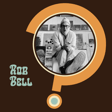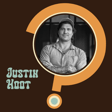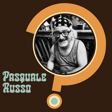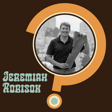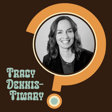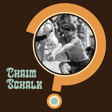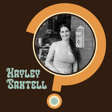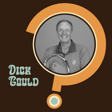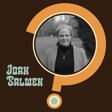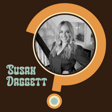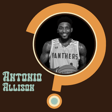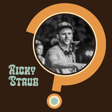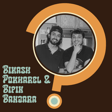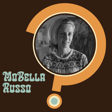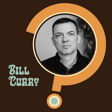Become a Creator today!Start creating today - Share your story with the world!
Start for free
00:00:00
00:00:01

Episode 18 - Blaine Hogan
Blaine Hogan is a director and author of Exit the Cave. We talked about his reasons for writing such an honest and personal book, and about the paradox between wanting to hide and wanting to be known. Blaine shares about leading creative teams while experiencing doubt, teaching his kids to do things even when they’re afraid, and about making the choice between cereal, bagels and waffles.
Exit the Cave is available on Amazon.
Follow him on instagram @blainehogan
Transcript
Introduction and Holiday Reflections
00:00:10
Speaker
Hello, welcome to What's Next. My name is Joel, and this is my show. Happy New Year. Happy 2024. I hope you all had a great holiday, great Christmas, time with family and friends. For some people, this time of year is painful. And if that's the case for you, I hope you had some ways of taking care of yourself and loving yourself.
00:00:33
Speaker
For my family and I, we came up to Chicago to be with my wife's family. We celebrated a great Christmas altogether. We've had a couple sick kids, so we really just ended up staying in a lot more than we planned, but the upside is that it's forced us to really slow down and have some lazy days.
00:00:53
Speaker
That has been really nice. We're heading back home the next couple of days, but 2023 has flown by.
Guest Introduction: Blaine Hogan and 'Exit the Cave'
00:01:01
Speaker
Today on the podcast is my conversation with Blaine Hogan. Blaine is a director and an author. He wrote a book that came out last year. His book is called Exit the Cave. It's a really honest and hopeful telling of his story, chronicling his struggles with addiction and abuse and trauma, his relationship with his father, his marriage, becoming a father himself.
00:01:22
Speaker
And it's really just a beautiful and honest account of his journey as he comes to terms with who he is. I really loved his book and identified with him a lot. So I wanted to talk to him about it on the podcast.
00:01:38
Speaker
We're also in a similar line of work and I was really interested in how his personal journey continues to impact his approach to directing and creativity into storytelling and just how he shows up in the work and I was thrilled to have him on. So please enjoy my conversation with Blaine Hogan.
Podcast Setup and Backgrounds
00:02:02
Speaker
I see the bath towel. That's right, man. This is deceiving, because this is a closet that I have just added some Amazon... Sound baffling? Yeah, and we're renting, but I just stapled it right into the wall. Nice. And I'm gonna... Apologize later. Yeah.
00:02:27
Speaker
I'm good with the spackle. Yeah. Thanks for doing this, Blaine. Absolutely. It's good to meet you. I've been hearing your voice for many hours now, listening to your book on audiobook. Oh my gosh. Yes. Now it's in real time. So where are you?
00:02:46
Speaker
Yeah. So I'm in St. Louis. I'm in St. Louis right now. Yeah. At the moment. How about you? Where are you at? So we are in Atlanta. Oh, you are. OK. And we've been here for just over a year now. OK. We're just south of the city and we're in a town called Trillith, which is directly across the street from Trillith Studios, which as of just this year, I think it's the largest single
00:03:16
Speaker
purpose-built film lot in north america oh wow it's crazy that's i know you doing a lot of work out of there not yet joel it's like i was it's funny cuz i was listening a little bit too i don't know ricky stop very well but i know his producer really well oh yeah
00:03:39
Speaker
from
Transitioning to Creative Hubs
00:03:40
Speaker
neighborhood. Yeah. And was just listening to him, you know, kind of talk about going from like staff pick. Yeah. Jealousy to commercial jealousy to reading, you know, deadline and variety. Yeah. And I'm like, that's kind of how I feel where I'll run into Harrison Ford at the pizza place. And the James Gunn drove down the street yesterday because he's scouting for Superman. And I was on
00:04:08
Speaker
Francis Ford Coppola is set just hanging out for four hours till they were like you don't belong here. It's so crazy to be like so close to something that you also feel so far away from yeah it's like living next to Hollywood eighty years ago yeah.
00:04:29
Speaker
But there's still a big gate. But that's why we moved here because we did a whole kind of path. We were in Chicago for a long time till our church fell apart and COVID happened. And we went to L.A. for a little bit. Then we went to Phoenix, Nashville, and then came here and we've been here for a year or so.
00:04:47
Speaker
Years ago, I spent a few weeks in Moldova working on a project there and it has been routinely sort of labeled as the least happy place on earth. Moldova? Yeah, just because they're so close to these other countries around them that have what they want, but they can't get it.
00:05:04
Speaker
Totally. And so just that constant reminder of what's possible or what you're being kept away from just kind of creates some profound misery. Yeah, it's miserable and it's like insanely hopeful. Yeah.
Importance of Relationships in Creativity
00:05:21
Speaker
That's right. The flip side of that is like, oh, I've become friends with the head of the studio and, you know, I can text him. And when Roger Deakins is here, can I, you know, tag along or, you know, the barrier is very high, but it's also really low.
00:05:42
Speaker
Yeah, it's relationships. Exactly. Which you seem to be pretty good at. I try to be really kind and slow, where I think in the past I was neither of those. So where at St. Louis are you, though? We're actually in a town called Edwardsville, which is just north of, it's just in Illinois.
00:06:07
Speaker
Okay. The reason I asked is because I went to Lindenwood University for two years in St.
Personal Struggles and Honest Storytelling
00:06:15
Speaker
Charles. In St. Charles, okay. Missouri. Okay. We moved down here from Chicago last year for my wife to go to school. Okay. She's going to school at SIU down here. Oh, okay.
00:06:27
Speaker
Yeah, for a grad program. And so because her schedule is the craziest, my life is now just being at home. So I'm working, managing the kids and essentially what that has resulted in is like, I don't know the area and working remotely. My life is now just being at home. That's so hard. Get in the car, drive around, pick the kids up and then come back home. How old are your kids?
00:06:49
Speaker
Six and nine. Boys or girls? Two boys, yeah, two boys. Okay, we're on that. We've got three girls, 12, 10, and six. Okay, hitting teenage years almost.
00:06:59
Speaker
Yeah. Hunter. Yep. It's probably already started. Yeah. Oh, yeah. Yeah. But it's great. Yeah. Good. Good. Well, again, thanks for doing this. Of course. I started this podcast about a year ago. Okay. And Randy Warren, our mutual friend. Yeah. He was like, Blaine just wrote a book and it seems like it's really in line with your podcast and you should see if he wants to come on. So I was like, okay, cool.
00:07:23
Speaker
I knew you, you know, just from our like social circles and... Yeah, Andrew. I mean, yeah, Doug, Doug Scott. Yeah. Yes. But yeah, so he recommended the book to me and I picked it up and read it. You know, I'll own up to the fact that I have a bit, I think a bit of a chip on my shoulder regarding like books that have a Christian label.
00:07:46
Speaker
tend to have an agenda that sort of sells out the story sure you should that's that's correct but i just really loved your book a lot and i didn't feel like that was the case at all you're very painfully honest there are many times as after the book came out i was like,
00:08:04
Speaker
What? Why did I do this? Yeah, I didn't have to. No one told me I had to say all those things. Yeah. And tell all those secrets. So why did you? Oh, that's a great question. Well, are we doing our is this happening right now? We're going.
Career Reflections and Book Evolution
00:08:22
Speaker
I got a contract for that book in 2017, which was just before everything fell apart at Willow Creek. But it was also near the time that I started feeling like my time might be done there. I had been there almost 10 years
00:08:46
Speaker
You were the creative director? Yeah, so I was the creative director up until maybe 2016 or so and then we hired another one and then there were two of us. We split the responsibilities. But I had
00:09:04
Speaker
spent 10 years in what was now a second career for me because I started out as an actor and then my life fell apart and I needed to make a change and ended up in Seattle at this graduate program. I thought I'd do two years there. It was my two-year long rehab and I'd go back to acting.
00:09:30
Speaker
And while i was there i had in seattle had started doing some creative direction and some video producing and had been connected to willow and actually have been connected to willow even before that cuz my wife group going there,
00:09:46
Speaker
And when i was acting and living downtown chicago and logan square this is way back when willow and some of these mega churches had big drama programs and they would do these you know big just dramas and shows and skits and whatever and so i would do that volunteer.
00:10:02
Speaker
So, I was connected to the church. Anyway, I finished my program in Seattle, moved back to Chicago, got married, thought I was going to go back to acting, and Willow offered a position. I was like, absolutely not, I don't want to work at a church. And they're like, but you have a theater degree and you just got a master's in theology and culture. It's like perfect.
00:10:20
Speaker
I'm like, I guess so. Then 10 years later, here I am and it's 2017. I get this contract for a book which I thought was going to be about the creative process because I'd really dug into what it meant to be a creative professional in any arena having to continue to create weekend and week out.
00:10:43
Speaker
The medium for me was you know a creative content and a weekend service which would go anywhere from you know big giant spectacles during the holidays to you know documentaries about the peace process in the middle east to documentaries about a nun replanting the rainforest.
00:11:02
Speaker
Right. And then everything in between. And so I had, you know, had this life as a as an actor professionally in theater and TV. Then I had now this career as a creative director at this giant megachurch. I was like, I probably have something to say about what it means to be a part of the creative process and
00:11:20
Speaker
create day in and day out and so that's what i wrote a proposal for and i thought oh that's that's what i'll do and i'll tell some of my story as a way to get into some of those kind of anecdotes.
00:11:36
Speaker
And i got the contract and then for basically two years i did what every successful author does which is ignore their deadlines and ignore and delete phone calls and emails from your publisher and agent.
00:11:56
Speaker
So I did that literally for two years, because I was like, everything was changing. My time at Willow felt like it was coming to an end. I felt like I was ready to move on to something else. The church that I was a part of was falling apart because of sexual misconduct allegations against the pastor. And we were in the middle of all of that, which meant that our core friend group
00:12:21
Speaker
was choosing sides. Do you believe the pastor? Do you believe the women? And then everybody moved. And then literally 12 families within the course of about a year and a half left the state of Illinois. These are the people we thought we were going to do the next 30 years with. And then COVID hit. And I'm like, I'm going to write a book about
00:12:42
Speaker
the creative process to Christian creatives, which I'm not even sure I believe in anymore in the mix and mess of all of this kind of turmoil.
Vulnerability and Personal Growth
00:12:55
Speaker
And so as we were deciding that we were gonna sell our home in Illinois, we were gonna go in this Odyssey with our family, and we were gonna figure out where on earth we really wanted to live because we had been set free from this place.
00:13:12
Speaker
in all these really hard ways, I finally took a Zoom call with my agent. He's on the call, it was him, but then there was a woman named Meredith. I realized quite quickly I had found myself in the middle of the intervention.
00:13:34
Speaker
And so it was the agent and he introduced Meredith as a writing coach. Okay. And he was like, I think you might need some help. You might need someone outside of yourself to kind of create some structure. And I said fine and started meeting with her. And she said,
00:13:53
Speaker
What is preventing you from writing the thing you want to say? I'm like, well, I think what I actually want to say is I'm not interested in the creative process as the point. I'm interested in my story.
00:14:09
Speaker
And I'm interested in telling my story as a means to talk about what it actually means to be creative, because my whole life has changed in a lot of different ways in these last, let's say, 20 years. And she said, well, so why don't you write about that? And I said, well, because that's not what I pitched to the publisher. You got to write with the publisher, what you pitched. And she said, no, you don't. And I was like, really?
00:14:34
Speaker
She's like, yeah, that's just the idea. They bought an idea. And so I was like, oh, okay. And then also the other thing was is that, you said it earlier, books that tend to have a bench towards faith can often feel like they're telling you a story to get you to believe in some sort of pitch or some sort of sale at the end, right? It's all like a lead up to go, and do you know,
00:15:04
Speaker
If you get in a car accident tonight, where are you going to end up? I didn't want to do it. That's not where I'm coming from. I just wanted to tell these stories. I think I also realized I had so many friends that were writing books and a lot of them were pastors and they were writing in that way that you had to tell a story to preach a message. I'm like,
00:15:31
Speaker
That's not what i wanna do and i think which what merideth begin to give me the courage to do is that the telling of the story was the preaching of the message and the message that i had to preach was the story i had to tell.
00:15:45
Speaker
And that's where I felt the most confident and the most safe is to just go back to the beginning using the metaphor of this cave and tell my story. So really how I came to the book is because I basically ended up writing a completely different book than I thought I was going to write.
00:16:10
Speaker
Yeah, well, it's fascinating because what I related to you a lot as the author in your stories was there's that push and pull between wanting to hide and wanting to be known. That paradox that exists. Yeah, I just loved how that kept coming up every turn every turn in your life in the book, like there that question was again, waiting for you. How does that continue to play out for you? Yeah, it is.
00:16:36
Speaker
I mean, it is an ultimate paradox and I think it's probably the core story of my life of the desire to want to be known but also how to be soft and facile and vulnerable long enough to be seen before you want to hide again. And so it is. I remember thinking a lot about when I was in seminary, they would talk about
00:17:02
Speaker
the hermeneutic spiral and really it's just like the spiral of anything really and I think of it really also probably in terms of addiction and I think if you were to put it in like faith terms
00:17:17
Speaker
Sometimes we talk about a faith as like being an up and to the right journey, like you just kind of keep moving. You're like, this is where you are in your faith journey, and you keep moving. And if you go backwards in any way, you're backsliding, which is just so it's, it's such a horrible metaphor.
00:17:37
Speaker
It's like faith as capitalism. Correct. Yeah, you've lost money. What the spiral does is instead of thinking of any movement backwards or any time that you go back underground because you're hiding after you've revealed yourself and you're like, oh my gosh, I have a vulnerability.
00:17:58
Speaker
a vulnerability hangover, I need to go back and hide. I'm realizing that some of those moments of hiding, instead of them being forced down by the weight of gravity, if you look at it more of a spiral, when you think of a spiral, any movement backwards is just momentum to move forward again.
00:18:19
Speaker
And so I think that what I'm learning is that that is always going to be the push and pull. That is always going to be the dance of to be seen and show yourself and tell the truth and then also the desire to want to hide and cover up.
00:18:40
Speaker
and realizing that that's very normal and natural, and that in those moments of hiding, to not feel ashamed of that, but instead recognizing that those are actually moments that are going to propel me back out into the light. Another goal in my life, especially as a recovery addict,
00:18:59
Speaker
is to make the moments of hiding less intense so that it's not just a huge loop. Don't do the thing that ruins your entire marriage. Just do the thing that makes things uncomfortable in your life for a day or two. Make the spiral tighter. But to me, I think it is continuing to live into that paradox. I also think about it in terms of
00:19:28
Speaker
How i end of the book in talking about our family motto and one of the phrases that we say almost every day in our family is do it afraid and that recognizing that i'm not sure of the people that are fearless that's not who i am in recognizing that like
00:19:48
Speaker
I'm always going to be afraid in some level.
Facing Fears and Overcoming Shame
00:19:52
Speaker
And the goal is not to be unafraid. The goal is to be able to do it afraid. And so I think that accepting and embracing that paradox of whether I'm afraid, but I still want to do it. So I'm not going to, you know, not do it until I'm not afraid. I'm going to step into whatever that thing is as a scared person and taking the risk.
00:20:14
Speaker
as well as what you're talking about is living into the paradox of like, I want to be vulnerable, but I also want to hide. And I hope that as I get older and wiser and have more practice, that I'm doing more of the showing up than I am. Yeah. Well, it's interesting. I feel like shame is such a critical element of that because like just speaking from my own experience, my own life, the desire to hide,
00:20:42
Speaker
is typically accompanied by shame in some way. And then that kicks in this belief that there's something wrong with me. There's something that is so broken and wrong with me that it's not that I'm disqualified. Right. And so I got to hide even more. That's right. I feel like there is something in our generation. How old are you?
00:21:03
Speaker
40 i'll be 44 in january okay you're a little older than me i'm 38 but we're close yeah i'm an elder millennial you're a proper you're paving the way yeah there's something in our generation that i feel like i see it around me at least is that
00:21:21
Speaker
We believe there is supposed to be no brokenness. We can only offer what is complete and whole. And I love that with your book, you kept bringing that up. That doesn't mean you can't participate.
00:21:40
Speaker
It actually means you can participate. But you have to, it's like, how do you remember that in the moment? You know, that's like, can you shorten that gap of how long it takes you to remember that? Yeah, the shame. This doesn't mean I'm disqualified. This means that I'm alive. Totally.
00:21:56
Speaker
I mean, it is a lifetime of practice, of being quick to be kind to yourself. I think one of the things that my dad passed a number of years ago and I talk about it in the book, and anytime he would call me drunk over the years, he would always say, how PG or not is
00:22:23
Speaker
No, let's fucking do it. He would say, he would say, he would say, I'm such a piece of shit. I'm such a piece of shit. And he would say that over and over and over again. And the hardest part about being in relationship with with my dad was that even if we forgave him, he could never forgive himself. And like that was his greatest sin is he could never allow
00:22:52
Speaker
he could never forgive himself. And I think that for me, that has been in many ways the biggest key. Because if you are a person of faith, oftentimes the way to find relief is to
00:23:11
Speaker
you know, ask for forgiveness outside of yourself. I grew up Catholic, so like going to confession. If you wanted to feel relief, you needed to tell the priest what you had done and then you needed to do your penance and your our fathers and your Hail Marys.
00:23:29
Speaker
And there's nothing inherently wrong with that. There's something really beautiful and powerful about confession. And there's something about someone saying you are absolved of your sins. That's a powerful thing. I think that what most people don't realize is that they can in many ways do that for themselves by just forgiving yourself.
00:23:51
Speaker
And I think that that is one of that's been, you know, in some ways a superpower to be able to go like, well, I fucked up. But tomorrow is actually a new day and really trying to understand what, what, how did I get here? What different choices do I need to make so that I don't end up back here again?
00:24:10
Speaker
And I think also having kids has really helped me because I have to do that with them and for them. Yeah. And if I can do that for my six year old and let her off the hook, what's stopping me from doing that for myself? And then I think once you begin to do that, you realize that your stains
00:24:36
Speaker
and your shame, they're actually your superpower.
Metaphors and Personal Insights
00:24:42
Speaker
And those are the places in which you can do the best work because you know them so intimately. And I find that really now because
00:24:51
Speaker
I didn't realize this, but probably for the last maybe 15 years, I've been adapting the story of my life into this allegory and wrote it as part of an assignment when I was in Seattle.
00:25:06
Speaker
And I left it alone for a long time because I felt like I needed to finish my book. And now I'm realizing as I'm jumping back back into it and writing it down as a feature screenplay. I'm recognizing that this is actually my own story.
00:25:22
Speaker
And the core element of it is the log line is a young man, a young boy becomes an unlikely king when he comes to discover that his stains are his greatest strengths.
00:25:37
Speaker
And I think that I'm really believing that. And I think that's where all of a sudden those moments of pain and shame and heartache and mistake are actually the places in which I am the strongest. I tell this metaphor in the book about the trapeze. Yes, yep. The net. Yeah, the net. And that I had gone and gotten a trapeze lesson because a friend gave it to me for my birthday because I was always
00:26:06
Speaker
Wanted to do that sounds like sounds awesome. Actually, I would love to try that. It was amazing. It's in Chicago is downtown Chicago. Well, they have that they have it. They've it's been set up on like the beach fronts. Yeah. Yeah, North Avenue. Same one. Okay. Yeah. Yeah. It mine wasn't indoors, but it was the same group that does it at North Avenue.
00:26:26
Speaker
And the story I tell in brief is I get up to the top, I realize, oh shit, I forgot I'm afraid of heights. And so I'm like trying to delay jumping off as long as I can. So I strike up conversation with the instructor and I'm like, you know, talking about the net and, you know, well, people don't really fly without a net. And she's like, oh, you know, what's interesting is the people that are flying without a net
00:26:50
Speaker
One, you think they're doing the scariest trick, but it's actually the most benign, most boring thing to make sure that they don't fall. Don't die. It's actually the people that are flying with a net that are doing the most risky thing. I was using that metaphor as like connection and love and intimacy and my marriage, essentially. Those things are the net for you. Those are things that are the net that they're not there to restrict you, but they're there to actually set you free to try to
00:27:19
Speaker
do the tricks you've never been able to do before. But one of the other questions I asked was, well, what happens when a net gets broken? And I said, do you replace it? She said, no, we don't replace it. But as soon as we see a place in the net that needs to be fixed, we fix it. And what's amazing is that that part of the net becomes the strongest. Yeah.
00:27:42
Speaker
And it's like a broken bone metaphor. I've broken both of my collar bones playing hockey in Minnesota. And of all my bones, these two little bird bones are now the strongest in my whole body because they've been broken and now they've been repaired. And so I think we're so
00:28:03
Speaker
afraid of those broken spaces because they are filled with so much shame. But the truth is those broken spaces are the key to our greatest strengths. Yeah. In order for the net to actually be something that functions, you have to be vulnerable to it. You have to try the crazy stunt. You have to try the... You have to jump.
00:28:24
Speaker
Yeah, you have to jump. The other story I tell in the book that sort of the antithesis of this is a good friend of mine. His brother was getting a divorce and he's he's he's explaining, you know, how he met this girl in an acting class that he was teaching and then she was bartending. And one thing led to another. And, you know, now he's getting a divorce and, you know, moving in with this actress and her cat.
00:28:51
Speaker
And my best friend is driving with his brother and he's like, that's the most boring thing I've ever heard. Yeah. And he was like, oh, but in his mind, you know, the the the brother, it's like I'm you know, my my life is falling apart. This is the most dramatic thing that's ever happened to me in my whole life. And my my best friend was reminding him that, no, this is the most this is
00:29:21
Speaker
You think you're flying your you think you don't have a net anymore but you're doing the most basic boring bullshit of like of course the scary more more dramatic really like
00:29:36
Speaker
Oh my God, what kind of trick is that that he could have done was figured out a way to save his marriage. Yeah. But you don't get to do that unless you actually take the jump and be willing to be caught in a net. Yeah. Sometimes the net doesn't necessarily feel like a net. It feels a hell of a lot like concrete when you hit it.
00:30:02
Speaker
Oh, yeah. Well, it's like, you know, it's it's how you hit water, right? Like, if you hit water just so you you break the the surface tension and it's like, incredible. You do it a little bit off and it's like, that thing that was just this flexible surface is is is a piece of concrete. And it always hurts.
00:30:27
Speaker
I think the trick is at some point does the pain of hitting that net become less than the pain of hitting the actual concrete when the net isn't there.
00:30:45
Speaker
Yeah, I guess that's the question, like, what is really living? Yeah. Right. That's kind of the definition of addiction, right? It's like, what keeps you from really living your life? What's harming you more? That's right. And the thing about addiction is addiction, anxiety, well, just using addiction as a metaphor, is like the thing that you are addicted to, actually, at one point, it was helping you to survive. Right. Right.
00:31:15
Speaker
Generally, addiction is doing something that one you no longer can control, but you're trying to salve some sort of pain that you felt or trauma that you've experienced. And so in many ways, thank God for the addiction because it probably kept you alive, like literally kept you on this planet so that you didn't have to feel the pain that you felt or that you're hiding from.
00:31:39
Speaker
But eventually that addiction is going to become so in control of your life that the thing that actually was helping you live or stay alive is now killing you. And then the equation changes and you then have to make a decision. Is this thing actually helping me as much as it was in the past or is it now killing me? And that's where people usually hit their rock bottom and
00:32:08
Speaker
attempt to make that decision that's life or death. Yeah. There's a part in your book where you talk about hearing the news of Philip Seymour Hoffman and his overdose and death. I think it's in the middle of your conversation back and forth with Dan Allender through email as you're talking about it with him.
00:32:29
Speaker
And there's a line where you talk about how you have to see yourself for who you really are. You have to be willing to do that. And there's a paradox, again, that exists there. And it exists throughout your book, too, where it's like there's the who I really am, which is based on the things that I've done. It's based on the mistakes I've made, the fears that I have. Again, all the ways I've disqualified myself from really trusting.
00:32:57
Speaker
But then there's also the who you really are that is your belief about what you have within yourself, like the hope of who you really are.
Identity and Past Experiences
00:33:06
Speaker
And like both of those things are true at the same time. And there's sort of this coming to terms with the fact that the truth is somewhere in the middle. Yeah. And we're never really done. It's like this ever evolving thing. We've been kind of raised on this like Hollywood appetite of like the story ends and the music swells and like there's some kind of lesson to take away and then. Yeah. There's a resolution of Dan Umont and yeah.
00:33:28
Speaker
Yeah, but like, you know, obviously your life continues and you still have struggles and you still have, you know, decisions you have to make and things you have to overcome and all that. So I'm curious how that continues to play out for you. Yep. Something that Dan said while we were in school,
00:33:48
Speaker
And I think that is part of the core of that conversation, though not stated explicitly in the book, but I talk about it elsewhere, is Dan would, at one point during my two years during the program, he said, we think of time as linear, as past, present, future. So exactly what you said, like it has a beginning, a middle, and an end in a way. But the way we experience time is actually a bit inverted. It's past, future, present.
00:34:18
Speaker
And so whatever happened to us in the past, most of us don't realize how much our past is actually driving us. Most of us are mainly animated by what happened to us in the past, either because we're trying to get it to happen again or trying to make sure it never happens again. And so when you think about that, the past is actually dictating how you are imagining the future.
00:34:48
Speaker
and however you imagine the future is how you live in the present. And so the ways that I have been able to go, okay,
00:34:57
Speaker
How do I live in this in-between that you're talking about? It's somewhere in the middle here. I've had to come to terms with my past. I've had to dig back into some of those stories, some of those places of pain and trauma. I've had to come to terms with the fact that I may have been an unreliable narrator in some of those moments.
00:35:19
Speaker
recognize that while my abuse should never have happened to me, it really truly wasn't my fault. And to bless that young boy who was curious and just wanted someone to connect with, connect to that young boy.
00:35:37
Speaker
Well, if I start to reevaluate and reimagine my past, that changes what's possible in the future. I no longer need to be fearful that that's going to happen to me again, that I won't be taken care of, that it is bad to be curious. All of those things begin to change.
00:35:58
Speaker
And I can start imagining a different future. And when I'm able to imagine a different future, I live differently in the present. And so for me, it always is that dance. Because right now, I had to take some creative director work that I really didn't want to take because I wish I had been chosen to shoot a commercial. Or I wish that my screenplay was finished and someone wants to give me
00:36:27
Speaker
25 million dollars to actually go make it. Those things haven't happened. And so because of that, I go back into like, well, it's never going to work out. I'm never going to get another job. This is the price that you pay for being curious and interested in taking risks. And instead, I should just go get a job at Home Depot or like go get an agency job. I'm like, oh, no, no, that's my fear and my past talking me out of
00:36:54
Speaker
the imagination of a different and better future. And as an artist and as a creative, my job is to have to stay in those spaces of hope and imagination. And it's really hard to do that. Again, if I had not understood how much my past was animating,
00:37:13
Speaker
those things sure and so for me like when you ask how do you do that you gotta go back you have to go back to those stories you have to go back to those core moments of pain and brokenness and recognize how possibly those stains are actually your strength.
00:37:31
Speaker
In some ways, it almost doesn't even seem fair. Again, there's so many of those moments where your story for yourself was able to be changed by things that you literally couldn't remember. Right. Yeah. It's not even up to you in some ways. Totally. It's like you're just digging, hoping to hit something. Well, yes. And if you get quiet with yourself,
00:37:56
Speaker
You could probably identify like these are the big craters like these are the big moments of of of impact and go oh.
00:38:09
Speaker
Oh, it was probably this or with a spouse or with a great friend or with a great therapist that can ask you some good questions. Also, just looking at how you're fucking up in the present is a really great indicator of where you should go. Like if you go, why am I doing this? Why do I keep doing this?
00:38:29
Speaker
If you get quiet about what is happening right now in the present and you just go, I wonder what this is about, like literally just getting curious, like, I wonder why I think that. I wonder why every time I'm in this situation, this is how I feel. Or I wonder if when I interact with that kind of person, this is like what comes up for me. If you just go, I wonder why. I bet you'll think up. I bet you'll go, oh, right.
00:38:55
Speaker
When I was 14, I, and, you know, thus can begin your therapeutic journey to wholeness and health. How do you define what it is that you do?
Current Work and Creative Management
00:39:08
Speaker
I'm a director and a writer, and I make my money right now doing commercials or creative direction, but am working towards developing and creating my own content with my wife, who's also a writer.
00:39:24
Speaker
Oh, really? Screenwriter. Yep, yep. So our first year of marriage, she went back and forth to LA doing a screenwriting program. And so that's really what she's been invested in along with our children. Yeah, yeah. And that's actually one of the reasons we chose Atlanta is because it was a place that offered tons of opportunity for both of us.
00:39:49
Speaker
because we weren't coming here just for my job. I weren't coming here just because family was here. We basically knew nobody and just had a hunch that this was the right place for us. Yeah, okay. What I'm really curious about is as a creative who's trying to bring something real and authentic and of yourself to the project, your own voice, how do you navigate all of the doubt and the
00:40:15
Speaker
desire to hide. How do you show up and then see it through? Oh boy.
00:40:24
Speaker
Well, I do a lot of breathing. Yeah. A lot of four square breathing. Are you familiar with four square breathing? I am. Yeah, we do it with our kids all the time. Yep, same. My 12 year old was like having a really hard time falling asleep last night. And so we were doing that. I'm always reminded when I'm doing that with any of them, I'm doing that for myself. I think it's
00:40:49
Speaker
I mean, it's sort of a cop-out answer, but it really is just like the everyday practice. Also, I was listening to an interview with Greta Gerwig earlier today, and she was talking about in her writing process so often, she'll write in public, but sometimes it's embarrassing because she falls asleep.
00:41:10
Speaker
And she'll just get so exhausted, like writing should just like put her head down and they don't like you sleeping in libraries. So now she tries to write in a more private place. Earlier this week, I'm in between jobs right now.
00:41:27
Speaker
And every time I'm in between jobs, I try to remind myself, this is the chance for you to work on your thing, like your script, the thing that you really want to say next. And so it's always really hard to do that because I'm like, well, I shouldn't take time away from trying to find more work.
00:41:47
Speaker
to do this thing that no one's asking me for, no one's paying me for. Yeah. But every time I'm busy, I keep thinking, oh, I wish I had spent that off time differently. But most of the time I spend it feeling afraid and anxious that I'm never going to work again. And so I just like spin my wheels and then I finally get a job and I'm like, damn, I misspent that time again. So I really tried hard to focus on this. And so I did that kind of the end of last week.
00:42:17
Speaker
And then over the weekend and on Monday, I was like, God, I just don't feel well. I feel something icky. I don't know what it is. I couldn't figure it out. And I would take the girls to school or get them ready. And then because I didn't have anything going on, I would just go back to bed for an hour. And all week, I felt so depressed and upset with myself until I realized
00:42:44
Speaker
the part of the script that I had been working on was actually going back to some of those darker places, some of the places I talk about in the book, but kind of in this more allegorical way. And that actually gave me a tremendous amount of energy because I was like, oh, no, no, no, you did it, like you did that work. And so now I'm feeling a little bit emboldened, like, okay, I'm doing it, even though
00:43:14
Speaker
the amount of steps for that to turn into a real thing are literally infinite. Like, I have to finish the script, I have to sell the script, I've got to find the funding, I've got, you know, whatever. But that's not the point. Like, the point is that
00:43:31
Speaker
I did some of the work and what I know because I've done it enough is that that has benefits everywhere. That has benefits with my family because I worked some stuff out of myself. It has benefits internally because
00:43:47
Speaker
I'm trying to say something that's true. It reminds me the next time I'm on a commercial pitch call that this is not my only job. It reminds me that I need to continue to take care of myself and my kind of like internal and spiritual health so that like Ricky you interviewed is like
00:44:09
Speaker
he can be a great dad i remember thinking when i was an actor that the actors i really really admired were the ones that i knew also went to their kids soccer games and also coach their kids little league and by that i recognize that like they were just normal everyday people
00:44:28
Speaker
And the more that I can dig into that minutia every day of getting up and being like, girls, do you want yogurt or waffles or bagels?
Balancing Life and Creativity
00:44:38
Speaker
Why are we still having this fight every morning? Just tell me what you want to eat for breakfast. And knowing that it's always a switch and then I'll end this long monologue. But
00:44:53
Speaker
When I'm on set, someone asks me every few minutes if there's something I need. They ask me if I want coffee or if I need a meal or if I'm hungry or if I need a snack. And then when I come home and it's just like cleaning up vomit and saying to Alexa upstairs, ladies, wake up and tell me, do you want a fucking waffle or yogurt or a bagel? But that is...
00:45:19
Speaker
the good stuff. Like it isn't being asked for coffee. It isn't like getting upgraded. It isn't actually being, it's the real life stuff. And that is the stuff that I'm grateful for. And I'll say one more thing. We're in a season of life with a 12 year old, a 10 year old and a six year old. We're like, it's a lot. It's just a lot.
00:45:45
Speaker
Yeah. And we've got neurodivergent in our family, like up and down, every which way, myself, my wife, our kids. And when it's the absolute hardest, when someone's having a tantrum and I'm about to throw something and no one still will tell me what they want for breakfast, I'm like, we're going to beg for this back. Yeah. We're going to beg for this moment back.
00:46:10
Speaker
And I can make a feature when I'm 75. I told you at the very beginning of this conversation that Francis Ford Coppola is shooting what will likely be his last film in our neighborhood. And I snuck onto set for like four hours until they were like, you don't go on here.
00:46:30
Speaker
tried to tell him the story. Do you need copy? That's right. And, you know, he sold his winery to make this last film. Oh, is that how he's funded it? Yeah, because no one would no one would finance it. Wow. So he funded it himself. And this will likely be his last project. And he's 87, I think 88.
00:46:51
Speaker
And I'm 44, so I'm like, I've got some time. I got time. I got time. What I don't have time for is the moments that are just like absolutely fleeting with our family and our children. And it's those things and Ricky said it in his podcast. He's like, they're not going to remember your films. Yeah.
00:47:16
Speaker
They're going to remember how you were as a dad. Whether you're a dad or not, what is your real life about? Have you invested in your real life and is your art flowing from that place? Yeah. I think that we define ourselves by the stories we tell ourselves about ourselves. If our story about ourselves is you have to be a filmmaker in order to be someone who has any kind of value. Yeah.
00:47:42
Speaker
then that'll be where you put all your emotional energy. That's right. It's hard. I will go on Instagram and I will see some people who are either posting about the job that they got or they're talking about some inspiration or they went to see this movie and I'm like, man, I woke up and
00:48:04
Speaker
My first thought was, God, I hope I don't have to argue about waffles today, but recognizing I can feel judgment towards myself against that because I didn't wake up thinking about my opus. I woke up just thinking about how to put one foot in front of the other, but that's actually the art as well. Yeah. Did you see the Phil Stutz documentary?
00:48:28
Speaker
Oh yeah. Like the thing that stood out to me and has been, it's actually why this podcast has been so valuable for me is like the, I am someone who gets so stuck in that exact cycle you're talking about where it's so easy to compare where I'm at with where I think I should be. And I just get more and more miserable and
00:48:49
Speaker
everyone in my family is like, just we don't want you to be around us right now. Yeah, totally. But letting go of any kind of result, any kind of connecting my identity to what this is, to what I think I'm supposed to be in this
00:49:06
Speaker
World of this podcast and just fucking do it. Just do the next thing. That's it. Yeah, just do the next thing. That's it Yeah, I just I want just want to say again blin. I really really did appreciate your book and I'm Our stories there in a lot of ways aren't the same in a lot of ways. They are the same and yeah, so I think that your your bravery and your courage to write it has made an impact on me and
00:49:32
Speaker
There's two things I think about. Well, one, thank you. That means a lot. I do. Dan Allender would talk about as a pastor, as a therapist, as a storyteller.
Storytelling and Creative Vision
00:49:47
Speaker
You can't take anyone farther than you've gone yourself. You would say that all the time. And then just kind of like a giant storytelling edict is the thing that is the most specific, is the most universal. And so if you, like you have a story that is specific to you, and if you can find mediums or modes to tell that story, whether it is through the
00:50:11
Speaker
Gift of raising your children or in some other medium that doing it with vulnerability and candor gives people courage to do the same and the thing that you think that is like this is so bizarre and weird and specific.
00:50:29
Speaker
um, is actually potentially going to be the thing that unlocks something for somebody else because they can see themselves. And I mean, you just said, it's like we are, we have very different lives, um, but also we're, you know, incredibly similar. I think that's the power of, of good, of, of honest storytelling. And I really do hope that that is what I attempted to do that anyway.
00:50:55
Speaker
Yeah, I think it's very evident. Okay, I just wanted to ask you about your creative process as you as you enter into a new project. Sure. What do you do? Where do you start? Well, some of it goes back to what I have done in
00:51:11
Speaker
the privacy of my own creative process way before the brief ever gets to me. This is a discipline and something I've tried to embrace and do as much as possible. But if you're familiar, there's a woman named Twyla Tharp. She wrote a book called The Creative Habit. Twyla Tharp was a really famous choreographer back in the 70s. She's a very famous choreographer.
00:51:38
Speaker
But in the book she talks about this process that she would have called the box and so this was back in the day when there was no digital media everything is physical and so she would just have this scratching box that anything that she was like interested in or caught her eye or like she would hear a song on the radio and she literally put a cassette tape in and press record and then she saw a newspaper article or a magazine for a photo or something yeah.
00:52:06
Speaker
All these physical pieces would go into this box. So it's, you know, any form of inspiration, all kinds of mediums. And then when she would get a commission, she would take that box and she would dump it out on the table and then she would go like, what's connected?
00:52:25
Speaker
And so when she began an actual job, like someone brought her a brief or a commission, she was never starting with a blank page and she was always starting with something that felt true to her. Even if like she never ended up using any of that, it would always like add to other connections and it would also reduce that fear of like, I don't know what to do.
00:52:51
Speaker
And so for me, over the years, I have developed a discipline of creating scratching piles in all kinds of mediums. So I have a Pinterest board. I use something called beta.film.ai, which is like a film grab kind of library of stills of commercials, ads, feature films, TV shows. Yeah.
00:53:13
Speaker
I've got a scratching pile over there. I have one in my iTunes, Apple Music, sorry, 44, and in my Spotify. That's right. And I have one in my music bed. And I know that in all of my books, I've underlined stuff. Or in my notes. I'm just everywhere that I can almost see or look or feel or touch.
00:53:37
Speaker
I have these scratching piles so that when I get a brief or I get something that is a piece of work that I do like just two days ago Atlanta was just announced in specifically here in Trillith and maybe like
00:53:53
Speaker
half a mile from here, the US Soccer Training Center will be built here. And they just announced it. Well, I got commissioned to write a pithy hype script for that that needed to be delivered by yesterday afternoon.
00:54:09
Speaker
Is that like in anticipation of the World Cup being here? Yeah, World Cup and it's actually in Chicago right now, but they're moving it and they've gone on this year's journey to try and figure out where should they do it. They landed in Atlanta, but we're in Atlanta.
00:54:28
Speaker
And so they just now announced literally yesterday where it was gonna go. It's amazing, it's really exciting. But my job had been through an agency and production company, we need you to write the hype script for the press release.
00:54:47
Speaker
Um, well, I'm like, Oh, I don't, I, they gave me the press release and that was it and a couple words. Um, but I know, um, but what I had was a music bed full of like really hype music that I already liked. It wasn't someone else's playlist. It was like over the years I've clicked.
00:55:10
Speaker
you know, the heart on a bunch of stuff, and that's in this list. And I just turned that list on and just started writing. And before I knew it, it was like, oh, there's the script, it's done. But the only reason I was able to work that fast was because I had already prepared for this moment. But I prepared for it not knowing that that moment would ever exist.
00:55:34
Speaker
And so to me, the action item is everyone, every creative needs to have a scratching pile. And you know what mediums resonate with you, what mediums inspire you. But I think it does two things. One, it curbs the fear that you get when you're facing the blank page, because you never have a blank page. You always have something to start with.
00:56:01
Speaker
that is like it doesn't matter if you never use it like they're not going to use any of the tracks that I listened to for this video. But it gave me the safety of like something to start with so that I wasn't starting from scratch.
00:56:19
Speaker
Yeah, it's like a risk free resource purely based on your taste. That's right. That's right. And I think that like, especially when it comes to commercial work, you know, like I'm a sales, I'm an ad guy, you know, I'm making commercials. And so this also makes it feel like it's a little bit more of my own humanity is involved, rather than it just being, you know, just straight
00:56:45
Speaker
Commerce and it was actually a joy to write because at first I got I was like oh fuck I don't what how I don't I don't even know if I have time to do this right now but I sat down in you know in two hours ninety minutes with some music that I loved that I probably put in that playlist
00:57:05
Speaker
five years ago. Help me write that thing today. Then how do you translate? There's that initial idea that spark and then as things spread out and become touched by more hands and go through a whole bunch more filters, what's your process for keeping the project going towards the goal, the vision?
00:57:27
Speaker
Well, I think getting really clear on what that vision is, I think one of the things that I will ask in an agency call, especially when it comes to commercials, what's the
00:57:43
Speaker
If we don't do this, we have failed. What is that? Because usually from a commercial ad perspective, I'm shepherding someone else's idea into fruition. It's different certainly if it's my own piece, but generally from a commerce standpoint, that's what it is.
00:58:04
Speaker
need to understand exactly what that is and then I have to find a way to fall in love with it so that I can continue to point people towards no no no no no we're getting off track they said this if we don't do this this fails and then it's making sure that you've hired really great people
00:58:24
Speaker
that you can empower, that you trust. So I am a director, I'm not hands off on any level, but I would probably call myself a really, a highly collaborative director. I shadowed on some shows in Chicago, like Chicago Fire, Chicago PD,
00:58:45
Speaker
And the EP and one of the main directors who I was shadowing gave me the best advice. He said, I always go to set hoping that I don't have the best idea.
00:58:56
Speaker
And by that, it means that you've put people in place that you trust, that you can feel like it's not just on you because you've created this incredible team. And I think a lot of directors, especially younger ones, feel like they have to have it all figured out.
00:59:15
Speaker
I feel that way all the time. Yeah, of course, because everyone's looking to you. But part of directing is finding a great team so that they are that it's not just on you that that I rely heavily on. Like I one one quick example, I was doing something that was live. It was for this big event and it was this giant musical number.
00:59:44
Speaker
And we were trying to figure something out about how we're going to get some stairs in. And the graphics were taking 30 hours to render, and the show was the next day. And so we couldn't do that.
00:59:59
Speaker
And it was basically like we were creating this digital house with all these stairs and performers in front of it. And we couldn't figure out the timing to be able to get people where they needed to be. And the choreographer, after we had been talking about this for maybe an hour and a half with production, walked up and was like, oh, we'll just change those two rooms. And we're like, well, we can't because that change is going to be a 30-hour render. And the visual effects guy was standing next to me. He's like, oh, no, that changed. That takes 15 minutes. And I'm like,
01:00:30
Speaker
we were staring at this problem for so long. And then the choreographer walks up and goes, oh, just do that. And I was like, this is why you're here so that you could help me and us save the day. And so that is a big part of the process is making sure you are hiring people and creating a team around you that will have better answers than you do.
01:00:57
Speaker
I liked that a lot. The story that you tell yourself about yourself changes how you interact in those moments, right? Because if the story is, I have to be the one who solves all the problems. Yeah. And if that was true in that case, we're fucked. Yeah. Because I didn't know what to do. Do you find that you get tripped up in terms of needing to come back to a place of remembering that, oh, yeah, this is not about me?
01:01:24
Speaker
Yeah, I think that one example that I think I learned a long time ago was I remember it was when I was working at Willow and we were we would do these Christmas productions that were just like hundreds of people, 100 cast, like so much money, people flying everywhere.
Leadership and Embracing Challenges
01:01:48
Speaker
I mean, it was like massive. Yeah.
01:01:51
Speaker
And I remember one time I was walking through the auditorium and I was like, like speed walking.
01:01:58
Speaker
We were in a break and someone was like, hey, Blaine, where are you going? I'm going over here. I got to do something. I left that conversation and I realized that I had just lied to them. I had no where to be. You just had to escape. Well, what it was is I was showing everyone how
01:02:23
Speaker
intense I was working. Because I thought that if I was projecting that kind of intensity, that everybody else would do the same. And something I had begun to remember from my psychology training is that when you put people into kind of a fight or flight status, like that kind of frenziedness,
01:02:46
Speaker
As a leader, it feels really great because you get to tell everyone what to do and you're in charge. But when you put people into that fight or flight place in their brain, they're flooded with a chemical cortisol. It's the stress. When you're being chased by a bear, it's amazing and gives you a really big burst of adrenaline.
01:03:11
Speaker
But you can't sustain it. And over time, it actually prevents you from making truly creative decisions. And so my role now on set as a director is reminding myself any time I begin to get frenzied or I even see people that are doing that, I'm like, we're lowering the RPMs. We're doing our four square breathing, which I am very happy to lead on set.
01:03:41
Speaker
and go like, that's not what we do on the set. As a director, you get, that is the thing you really get to control is like, you get to control the mood and the vibe on set. You literally get to control the chemicals that are in your crews and casts, brains and bodies by how you lead. And so for me, when I get in those situations, I'm reminded of like, oh,
01:04:09
Speaker
The more I amp up or the more that that person amps up, the less creative we will be and the harder it will be to solve that problem that they're getting amped up about. And so my job is to find ways to lower the RPMs and trust that just because someone is walking calmly from one place to another does not mean they're not solving the problem and working.
01:04:35
Speaker
Yeah. So do you think that when your RPMs go up, is it because you are feeling like you don't know what to do? What gets your RPMs up? Yeah. I think certainly the fear of like, I have to figure this out and I don't know the answer to that. I mean, obviously, you know, I was telling my daughter this because she was feeling anxious about something that's happening this weekend. I was reminding her when I'm on set, like one of the, the solace, some of the things
01:05:03
Speaker
something I take the greatest solace in is knowing that eventually this is going to be over. Yes. It's like I got a 10 hour day or I get this much time with an actor and that's it and they go away. And so it's in those moments that I get really amped up. It's when I recognize all the things that happen.
01:05:28
Speaker
Um, but it becomes less about what it is or the things that are setting me off and it's more about reminding myself like Part of it. Yeah, the locations go away the person comes late They didn't prep that camera like just things go wrong. Yeah, and that just like life
01:05:49
Speaker
you're not in control of it. And so all you can do is figure out better ways to respond and prepare as much as possible. For me in those situations, often my response is that I'm not good enough at this to keep these things from going sideways. Yeah, yeah, yeah. And that, I mean, yeah. So what do you do?
01:06:11
Speaker
I walk really fast. I mean, some of that, what you're talking about, like, oh yeah, this is going to end. The time will end. And I think a lot of it is just the repetition of there's never been a project that hasn't gone sideways in some way. And we always get to the end result somehow. Correct.
01:06:33
Speaker
And like you always kind of seem to in the mall in those moments, forget that, that history and that, that, um, that, like, yeah, you know, generally it works out. Yeah. I, um, I wish I had this up yet, but my friend Scott Erickson. Oh, yeah. I didn't know Scott Erickson. Yeah. Scott.
01:06:50
Speaker
or I don't know him, but I know his artwork. Well, he, in his studio, he's got this, a bunch of them, but like he's taken old public domain oil print paintings and like put phrases on them. And the one I just bought that's coming in a day or two just says, I get to. Yes, yes. And that is what I, I will, when it's the hardest,
01:07:20
Speaker
I will say that out loud, I'll be like, you guys, look what we get to do. Like we get to do this. We get to solve this problem. Seth Godin, I think it's attributed to him, but you say, why would you wanna work in a place where you didn't get to solve interesting problems? And interesting problems are things that are going wrong.
01:07:42
Speaker
Yeah. And so obviously there's just all the preparation that you need to do and like the smart things that you need to like I don't I'm not an advocate of we'll just go figure it out and it'll be it'll be fine. Like I think there's maturity to be found in preparation. But to what you said, like it always goes sideways. Something always goes sideways. Yeah. And you can't prepare for it other than to prepare that that will happen.
01:08:10
Speaker
Yeah. And to yell out, you guys, how fun is this? Yeah. Yeah. Okay. One final thought on your book, which really ties to that is that in your book, you talked about how like your work requires all this kind of big thinking and
01:08:26
Speaker
problem solving and overcoming challenges but there's a disconnect between that type of application in your work and then being able to do that in your own life like your personal life where you're making your life into what you want it to be and i relate to that.
01:08:42
Speaker
so much. When a problem arises at work on a shoot, there's an intoxicating element to it because that's when really good surprises happen. Totally. Yeah. But in my own personal life, when things start to go sideways and I'm faced with some kind of new vulnerability that I don't want to have to face,
01:09:03
Speaker
the same kind of creative spark that can see it through in my personal life like seems to at times be just non-existent. Yeah, I tell the story in the book of like having recently been married and realizing like oh my god like how
01:09:21
Speaker
I can be so creative in my work life, but why can't I try something different in a fight with my wife? Why do I just go back to the jab and the cold shoulder and the whatever? And it really is, I think that that's one of the gifts of being an artist is going, okay, what if I flipped the script?
01:09:44
Speaker
And all of the things that I was able to do on set to solve an interesting and really hard and unexpected problem, I became more buoyant and go like, you guys, we get to do this. Yeah, we get to do this. I was my daughter
01:10:03
Speaker
One of the reasons why she couldn't fall asleep last night and we need to do the four square breathing is because she signed up to do a business fair in our neighborhood. There's like a little winter market tomorrow.
01:10:16
Speaker
Well, she was realizing like the, um, she has a dance rehearsal that's mandatory and she might not be able to get there till late. And now her business partner is going to have to do most of it. And we're like, first of all, Ruby, we told you this 800 times before you started this. Okay. So that's not the moment to, to stick it to her and be like, listen, you've made your own bed and you get to lie in it.
01:10:39
Speaker
And she's like, and then I'm going to miss like the hardest part about it or the most fun part about it, which is like the selling of it. And I'm like, okay, absolutely. But what I don't want you to miss is this is part of the business. Yeah. Like you're actually doing the part of the business. Like you think the business fair is the putting your
01:11:01
Speaker
you know, thing on a table and selling it. But the actual thing is the journey towards that. And this is actually part of it and feeling that. And
01:11:18
Speaker
as you're talking about it and what I'm saying is like, oh, I'm trying to get her to do what is also hard for me to do in my normal life, which is like, okay, this is unexpected, or now I have to deal with this, and something that maybe creatively I would have been real winsome and excited and buoyant about. I'm like, God, what a, why do I gotta, you know?
01:11:41
Speaker
But I think I think it's not only do you get to in your work, but probably and Definitely more importantly you get to in life. Yeah, like you get to Solve these interesting part you get to live. Yeah, you get to like not be dead. Yeah. Yeah you you get to do
01:12:06
Speaker
You get to take in that breath. That's pretty magical to me and gives me some energy to be okay with, to bring it all the way back full circle.
01:12:22
Speaker
enjoy the fight over what my children are going to eat in the morning. Yeah. Dude, well, thanks so much, Blaine. I really, really appreciate your time and good luck with everything in Atlanta with directing. I look forward to seeing what you do next and I love the pickleball spot. Oh, it's fun. Thanks. Do you play? The funny story about that is that there's a pickleball court here in my neighborhood
01:12:47
Speaker
And the first time I played, which I went exclusively to do research because I'd never played before and I was going to be shooting this commercial. And I stepped on a pickle ball, ball, almost almost broke my ankle and.
01:13:04
Speaker
Was in a boot for two months are you kidding no i was like playing i was like i'm pretty good at this and then roll my ankle so severely that i was in a boot for many weeks man so you lived it you lived it i did i did you know pickleball.
01:13:23
Speaker
Oh, one last thing. If people want to buy your book, what's the best way to do that? To go to Amazon is the easiest and best way. Yep, Eggs of the Cave. Cool. Awesome. All right. Thanks, man. All right, Joel. Thank you. Yeah. Have a good Christmas. You too. Bye. Thanks.
01:13:50
Speaker
There is a link to Blaine's book Exit the Cave in the episode description where you can find it on Amazon. I really recommend it. You can also follow him on Instagram and I appreciate his Instagram posts because he's continuing to find ways to be disarmingly honest and it's really refreshing and I really appreciate his perspective and his honesty.
01:14:13
Speaker
my wife and I were doing some looking back on the year and 2023 was the year that I started the podcast. Just reflecting on the year, I realized just how meaningful it is to me that I was able to start the podcast and how much fulfillment I get out of doing this every week. So I'm just I'm really looking forward to spending some time with you all in your ears in 2024.
01:14:40
Speaker
So thank you again so much for being here and for listening. Happy New Year and we'll see you next week.
